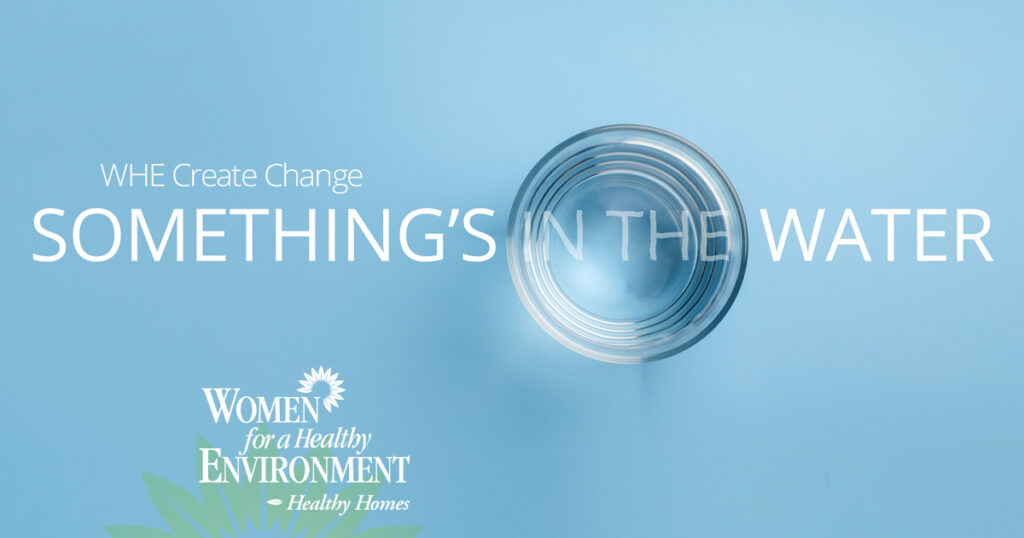A System Analysis on Quality and Transparency in Allegheny County Community Water Systems
Is the tap water healthy to drink? Where is information about levels of contaminants in drinking water found? How are ratepayer concerns brought to the attention of water systems? What measures do water systems have in place to protect consumers from exposures such as lead? How much do water systems in Allegheny County differ?
These are the questions WHE heard from residents in community workshops and among our many partners collaborating on environmental initiatives across the county. We decided to tackle them by analyzing all 36 Allegheny County water systems’ operational and communication capacities, public accessibility and transparency of information, adherence to drinking water quality standards, and strategies to reduce lead in drinking water exposure. We spent two years analyzing publicly available data through surveys of water systems, public websites, and Right-to-Know requests. Our goal was to identify issues faced by ratepayers, water systems and public health officials alike.
The key findings of the report were that:
- Most water systems in Allegheny County are publicly owned.
- Water systems serving Allegheny County may be understaffed and under-resourced.
- Since 2016, more than half of the water systems had water quality-related violations.
- 80 percent of water systems reported detectable levels of lead in their drinking water in their 2019 Consumer Confidence Reports.
- Water systems could improve their accessibility and risk communication to consumers.
Lead Prevention Strategies
While the action level for lead in drinking water is currently 15 parts per billion (ppb), there is no safe level of lead exposure. There are two solutions critical to the reduction of lead in drinking water: corrosion control and the full replacement of lead service lines. Partial lead service line replacements, or only replacing part of a service line on just the public or private side, can cause a spike in lead levels higher than before any replacement occurred. Of the 36 systems in the county, eight reported partial replacements on the public side, three reported partial replacements on the private side, and five reported total lead service line replacements (since January 1, 2015). A diagram of partial vs. full lead service line replacements is shown below:

Increased and continued investment is needed for public water systems to boost their capacity to integrate public health best practices. Recently, the Pennsylvania Infrastructure Investment Authority (PENNVEST) offered financial support for full lead service line replacements for water systems across the state. The Authority anticipates granting 90 million dollars at their board meeting tomorrow, April 21.
Key Recommendations
Going forward, a regional conversation between Allegheny County water systems, ratepayers, and public health entities must occur in order to develop sustainable solutions that will increase capacity and transparency of water systems and protect the health of community drinking water.
Despite the fact that public water systems may not currently perform as best as they can, it is imperative to note that this performance is a result of inadequate state and federal investment in the maintenance and improvements of our aging infrastructure. This report and its findings do not make the case for the privatization of water systems. Investor-owned or investor-influenced water systems tend to be more expensive and less transparent. Instead, regionalization and collaboration across water systems, along with the allocation of significant public funding, are key to community water systems’ success.
Are you an Allegheny County resident who would like to learn more about your drinking water quality?
- Search “[water system name] CCR Report [year]” online to find the most recent water quality monitoring results. The level of lead in the “90th percentile” of the samples taken will be reported in parts per billion (ppb). This number is compared to the action level (AL) of 15 ppb in order to determine whether the system is in violation of state and federal standards. The number of samples above the action level will be found in “Site above AL.”
- Request a water quality test on your drinking water. The following systems offer residential testing, some with an associated cost:
- Borough of Aspinwall
- Braddock Borough Water Authority (limited)
- East Deer Township Waterworks
- Edgeworth Borough Municipal Authority
- Fawn-Frazer Joint Water Authority
- Hampton-Shaler Township Municipal Authority
- Harmar Township Municipal Authority
- Pittsburgh Water and Sewer Authority
- Sewickley Borough Water Authority
- Westmoreland County Municipal Authority
- Voice your concerns at your water system’s next board meeting. Bring a neighbor or two to amplify your message.
- Purchase an NSF (National Sanitation Foundation) certified home water pitcher or faucet-mount filter to reduce lead from water. Always used cold tap water when preparing food, beverages and infant formula. The NSF has an online guide4232 that lists all NSF-certified filters for lead reduction in drinking water, explains their water treatment standards and the process by which they verify a filter’s ability to reduce lead in drinking water. In addition, reverse osmosis filtration systems are a more comprehensive solution to filter all sources of water in your home. More information on all water filtration options can be found on NSF’s Lead in Drinking Water webpage
- Submit a grievance report if you have water quality or system process concerns by contacting your water system by phone or email, or by visiting their office.





